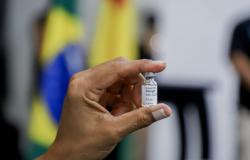Data released by the Brazilian Institute of Geography and Statistics (IBGE) indicate that 2022 was the year in which fewer births were registered in the national territory since 1977. The Civil Registry Statistics survey has been carried out since 1974.
In the year in question, there were 2.5 million people born alive, which represents a decline of 3.5% compared to 2021. When the analysis is made in relation to the average calculated from 2010 to 2019, the drop is even more relevant and exceeds 10%.
The most significant difference occurred in the Northeast region, where the number of live births was 6.7% lower than in the previous year. Next are the North (-3.8%), Southeast (-2.6%), Central-West (-1.6%) and South (-0.7%) regions.
Among the states, only Santa Catarina and Mato Grosso had an increase in registered births between 2021 and 2022, of 2% and 1.8% respectively. In all other units of the federation there was a drop. The most significant decline, in Paraíba, was almost 10%.
According to the data presented, Brazil has experienced a downward trend in these indices since 2019. This indicates a population aging process. Information from the 2022 Census also confirms the scenario. According to the study, the proportion of people aged 65 and over reached a record 10.9%. The number of children and young people up to 14 years old fell to 19.8%.
The Civil Registration Statistics survey also shows that 39% of births were generated by people aged 30 or over. The age group between 20 and 29 years old is still the one that gives the most births in Brazil, but has been showing a decreasing trend in recent decades. A similar scenario is observed at ages below 20 years.
Deaths remain high
Although the number of deaths registered in Brazil in 2022 fell compared to the previous year’s historical record, the data still remained higher than records prior to the Covid-19 pandemic. In the year in question, more than 1.5 million deaths were recorded.
The result is lower than that observed in 2021, the deadliest year in Brazil’s history, when more than 1.8 million lives were lost. Even so, the numbers are well above what occurred before the pandemic. Between 2010 and 2019, the total number of deaths grew year after year, but never exceeded 1.4 million.
In January 2022 alone, for example, there were more than 160 thousand deaths. At the time, Brazil was experiencing a considerable increase in the number of people infected by Covid-19. By the end of the month, the coronavirus had caused almost 10,000 deaths, 6% of the total recorded in the period.
In relation to the year 2021, the biggest drops in the absolute numbers of deaths occurred in the age groups from 60 to 69, which had almost 80 thousand fewer deaths, and between 50 and 59 years old, with a decline of around 72 thousand.
However, there was an increase in deaths among children aged 1 to 4 years. There were 1,300 more deaths, the biggest relative increase among all groups by age.
Editing: Matheus Alves de Almeida





